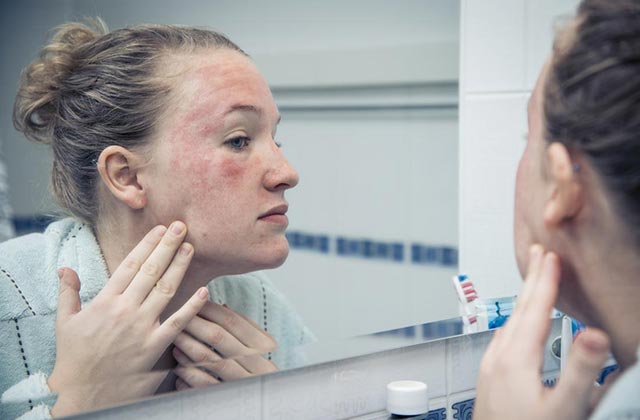Facing the physical and psychological impact of psoriasis can be challenging and sometimes devastating, not only for one million Canadians who have it but also for their respective loved ones and friends.
Psoriasis is an inflammatory skin condition that is known for its red, elevated areas accompanied by silvery-white scales. It can appear on your scalp, knees, elbows, lower back, and chest area. Around 125 million people all over the world suffer this disease. The most common type is plaque psoriasis, which affects 90% of people with this skin disorder.
Because of the discomfort brought by its symptoms and its effect on one’s physical appearance, Psoriasis has a big impact on a person which extends to his or her psychological aspect.
Living with psoriasis means enduring the pain, itchiness, and bleeding bouts brought by those red silvery-white patches. Sometimes, sufferers can also have arthritis, which makes it even more challenging for individuals. The overall experience can drive people living with psoriasis to feel anxiety, depression, or even suicide.
That is why they need all the help they can get. If you have a loved one or relative suffering from this disease, show you care by doing these things:
1. Read up about the disease. Know about the diseases so you will understand why people living with psoriasis act a certain way. You can begin with learning about simple information regarding the disease – its symptoms, why it happens to people, and how to manage symptoms or get it treated. The more you learn about these things, the more you will understand, and the more you can relate to your loved one or relative.
Another thing you can do to learn about psoriasis is to ask about it directly from your friend or relative. Let them tell you how they feel. Inquire about their symptoms if they are willing to talk about it. If they start opening up to you, you can then ask about the things you can do to help. One mistake you can do if you are still learning about the disease is assuming the kind of assistance a person suffering from psoriasis wants. Use what you learn to emphasize, but when it comes to giving direct help, always ask your loved ones what they want.
2. Minimize stressors in the household or among your circle. You cannot eliminate stress but you can surely reduce it to manageable levels. Most persons living with psoriasis would attest that stress sometimes triggers flare-ups. If you are living in the same house, try to give your loved one some responsibilities that he or she can easily manage. You can start by getting him or her to talk about the things that he or she finds difficult to do. Also, ask if there are people that make him or her more anxious than usual. It is good to avoid toxic people and circumstances in the mean time.
Another thing that you can do to lessen the stress of a person living with psoriasis is to let them engage in relaxing activities like yoga or meditation. A bit of daily physical exercise can also make a difference. You can also enjoy some stress decompression activities together.
3. Be sensitive to severe anxiety or depression signs. People suffering from psoriasis are at risk of having depression or extreme anxiety. Research suggests that one out of four people with this disease becomes depressed at some point. Check on your friend or loved one once in a while. If you notice abrupt behavioral changes, mood changes, or any verbal cues, stay with him or her. Get him or her to talk or consult with a therapist as much as possible.
4. Check your mental health too. If you are hands-on about taking care of a loved one or family with psoriasis, it is possible that you can get physically and emotionally drained too. If you are noticing signs that you are getting psychologically distraught, take time to relax or have a time out. Your responsibility is to help the other person to take care of himself or herself. If things are getting hard, get help from other family members or friends. Do not try to carry everything by yourself or else, you will end up exhausted and bitter. This is bad for you and the person living with psoriasis.
5. Talk about getting psoriasis treatment. Some people suffering from psoriasis get disappointed when one of their treatments fail to bring the necessary results. Although being frustrated is understandable, it is not recommended that he or she would ditch seeking treatment altogether. Encourage your loved one to not give up and continue to find the right treatment combination that can manage symptoms. Consult an online doctor Ontario to assist your loved one with the treatment options.
There is no known cure for psoriasis. And since this disease is something that stays for life, persons living with psoriasis will need the support they can get. Show them you care with these five tips.

